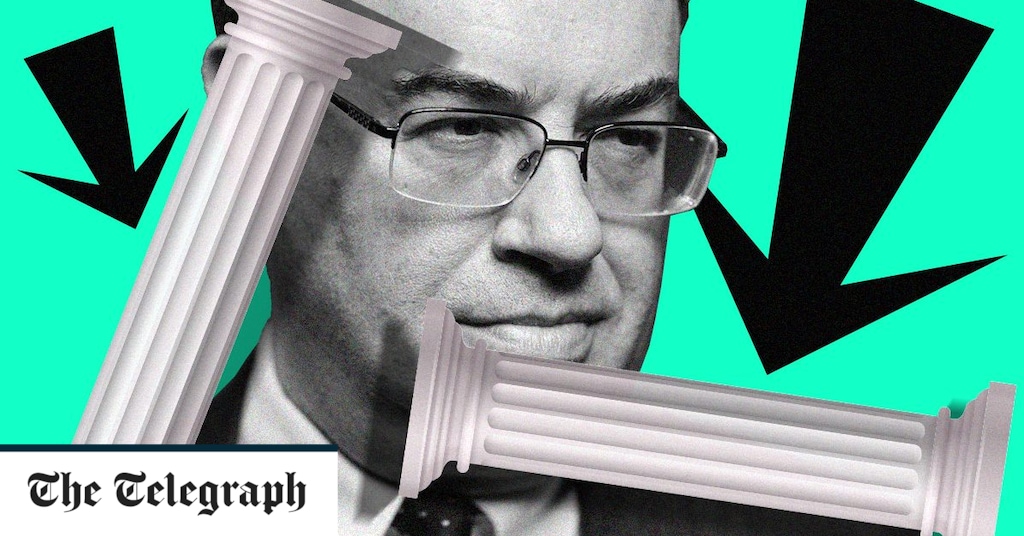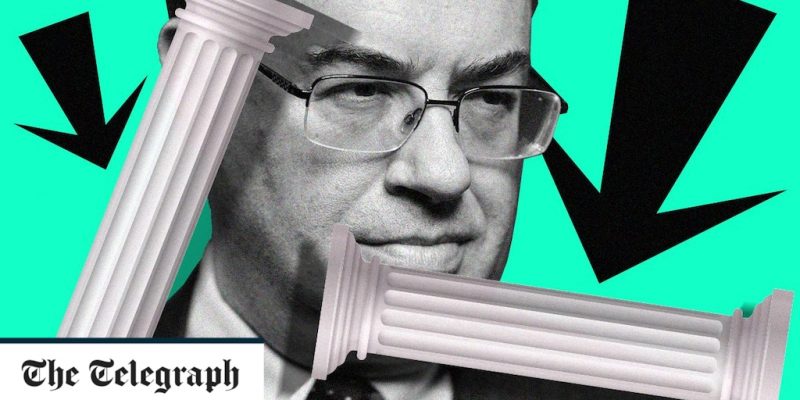The Bank of England has paved the way for negative interest rates in the face of a looming unemployment crisis, which means the prospect of banks paying you to borrow and charging you to save is moving closer to reality.
The central bank’s Monetary Policy Committee announced in September that interest rates would stay at the record low level of 0.1pc.
However, it added that it was exploring how a negative rate could be “implemented effectively, should the outlook for inflation and output warrant it”.
It has now written to banks and lenders to ask about their “readiness to deal” with this eventuality in an indication it could come sooner than expected.
The idea of the drastic move would be to encourage firms to borrow, invest and grow, providing a boost to an economy gripped by one of the worst recessions in history. This would hopefully reduce unemployment and fight off the bleak prospect of deflation – where prices start falling and the economy enters a vicious downward spiral.
But what would negative interest rates actually mean for your personal finances? Will your mortgage lender be sending you a monthly cheque? Will you have to write one for your savings provider? And what will the impact be on markets and our investments?
Will the bank pay me to borrow money?
The vast majority of mortgages in Britain are taken out on a fixed basis, meaning most homeowners would not see their rate change if the Bank Rate were to fall below zero.
The biggest beneficiaries would be those on tracker and variable mortgages. Tracker loans move in line with the Bank Rate and would drop by the corresponding amount.
Banks often have a “collar” or “floor” clause written into these mortgages. This means that rates cannot fall below a set point. For example, tracker mortgages agreed by Nationwide since 2009 state that the interest rate cannot drop below 0pc, regardless of the Bank Rate.
Variable-rate loans, including lenders’ standard variable rates, are not guaranteed to fall in the same way but in practice a significant fall or rise in the Bank Rate will be passed on to consumers. These may have clauses which state they will not fall below zero.
Consumers can take advantage of negative interest rates by choosing a tracker loan today as repayments may fall should the Bank Rate turn negative.
However, tracker mortgages are not necessarily cheaper than fixed-rate loans. The lowest fixed rate today is available from Halifax and charges 1.28pc. By comparison, Cumberland Building Society has the lowest tracker rate at 1.51pc, which is 1.41 percentage points above the Bank Rate.
Will the bank charge me to save?
The idea behind low rates and negative rates is to get businesses borrowing via a big enough incentive not to hoard cash. But in reality, when it comes to consumers, banks are unlikely to ask a saver to pay it interest for an account.
Banks need our savings deposits so they have cash – known as liquidity – to lend. After all, what is to stop us from piling up our cash under our mattresses or going out and buying a safe and keeping our money locked away at home?
This poses a massive security risk and is something lawmakers and regulators would not allow to happen. What is more likely is that savings deals will continue to fall, but not past zero.
Banks will likely recoup some of the cost of maintaining deals in positive territory by upping charges on premium accounts and making deals more expensive in other parts of their businesses.
Those looking to lock in a savings deal with a fixed-bond account or similar should not wait, as there is little prospect of rates increasing any time soon.
The best one and two-year fixed-bond accounts on offer today are both from Al Rayan Bank, paying 1.31pc and 1.37pc respectively.
The best three-year fixed is also from Al Rayan Bank, paying 1.46pc. The best five-year fixed bond is from Bank of London and the Middle East and pays 1.6pc. Al Rayan Bank and BLME are Sharia banks and the returns are not guaranteed, although they tend to pay the advertised rate and are FSCS protected.
Outside of Sharia banks, My Community Bank pays 1.25pc for its one-year fixed rate and 1.3pc for its two-year fixed. The best easy-access account is from Newbury Building Society, paying 1.1pc.
The government-backed National Savings and Investments recently announced it was cutting its market-leading Income Bonds rate from 1.16pc to 0.01pc. The changes take effect on November 24.
What will happen to my pension and Isa investments?
The Bank Rate sets the “risk-fee” savings rate in an economy and affects the rate at which companies and governments can borrow. When rates are low, it impacts how investors value other assets.
For investors who own bonds, this is positive. It makes the yield on bonds relatively more attractive and therefore increases demand for them, pushing up their value.
For stocks it is more complicated. On the one hand, lower rates signal economic problems as the Bank of England is trying to stimulate the economy. This can be interpreted as a bad sign for company earnings and therefore share prices.
That said, lower rates means cheaper debt for companies, which can use it to fuel growth. This is good for fast-growing companies with low or non-existent profits as they can use cheap debt to expand and become profitable.
It could also be positive for stocks because it increases the value of future earnings relative to the lower yields on offer from the bond market. This means it is more worthwhile owning stocks than bonds for future income, which pushes up share prices.
Adrian Lowcock, of fund shop Willis Owen, said a negative rate would be bad news for bank shares as their profit margins will be affected. It is good news for companies with lots of debt, such as airlines and retailers.
It is also good for smaller companies using debt to fuel growth, he said. He recommended the £1.2bn Merian UK Smaller Companies fund for investors looking to profit from lower interest rates.
A negative rate is also positive for gold. One of the criticisms of the precious metal is that it does not yield anything, but in a world of negative interest rates this becomes a positive.
Gold miners are a good way of getting exposure to the gold price. Mr Lowcock recommend the £1.8bn Blackrock Gold and General fund.
























Comments